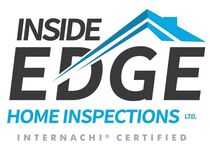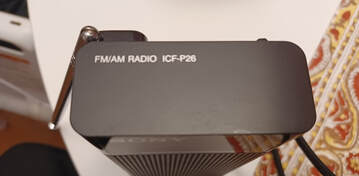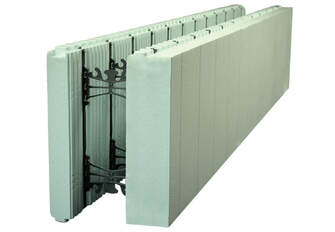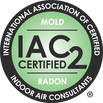Mike's Home Inspector BlogMichael Burfitt |
|
While preparing for a potential power outage recently due to freezing rain, I couldn’t help but notice this radio as inspiration for writing my next blog post. You would likely think I am going to talk about emergency preparedness, but I am looking at the model number, particularly the first three letters, which as you can see are ICF. In the world of home construction, ICF is an initialism for Insulated Concrete Forms. While it has only become common in the past 15 years it actually dates back to its invention right here in Canada in 1966. An ICF is composed of two main components: insulation, almost always in the form of expanded polystyrene (EPS) and concrete with steel reinforcement (rebar). They can be used in both foundations and walls, although the latter is less common. The insulated blocks are used to hold the concrete while it cures (just like the removable plywood used in regular concrete construction) and are permanently left in place to provide valuable wall insulation. I recently did an inspection where my client wanted to know what an ICF was and how far it went up the walls. While I typically see them just used as the home’s foundation, this particular home inspection showed that the entire wall structure right up to the rafters was constructed of ICF. So, is that a good thing? The cliché answer is that it depends. My professional answer is an absolute yes, but it definitely has drawbacks.
First, the Bad News There are a number of disadvantages to ICF construction. Some of these include:
Advantages of ICF There are many benefits to an ICF home. While I only report and never make advice on buying decisions, I definitely get excited when I see ICF construction. Some upsides include:
Overall, I draw parallels to my post on heat pumps. While there is a significant initial upfront cost, the savings in both money and energy over the long run make it all the more worthwhile. Unfortunately, the higher price tag can scare many developers and new homeowners off but to this home inspector, it is an investment well worth the initial expense. |
Archives
July 2024
Categories
All
|
|
Inside Edge Home Inspections Ltd.
Halifax, NS 902-209-9921 [email protected] Proudly Serving the HRM & Central Nova Scotia |



 RSS Feed
RSS Feed

